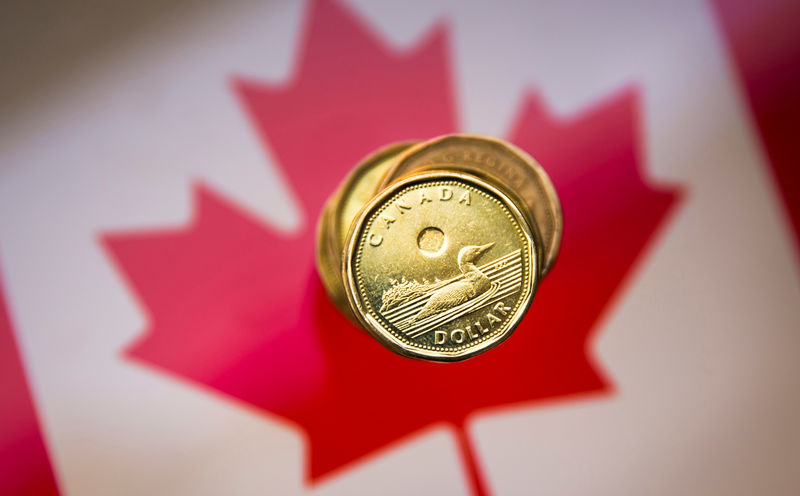By Laila Kearney
NEW YORK (Reuters) - A pact between the United States and Canada to rescue the trilateral North American Free Trade Agreement with Mexico drove up global stock markets and the Canadian dollar on Monday, while weighing on safe-haven assets.
The newly named United States-Mexico-Canada Agreement (USMCA) announced on Sunday preserves a $1.2 trillion open-trade zone that was on the brink of collapse after nearly a quarter century.
"It is good news not only for NAFTA and North America in general, but a lot of market participants are really viewing this as a positive for future negotiations, especially with China," said Lindsey Bell, investment strategist at CFRA Research in New York.
In currencies, the British pound rose against the U.S. dollar after Bloomberg reported that the UK government was proposing a compromise on the Irish border issue in Brexit talks.
The Dow Jones Industrial Average (DJI) rose 192.9 points, or 0.73 percent, to 26,651.21, the S&P 500 (SPX) gained 10.61 points, or 0.36 percent, to 2,924.59 and the Nasdaq Composite (IXIC) dropped 9.05 points, or 0.11 percent, to 8,037.30.
MSCI's gauge of stocks across the globe (MIWD00000PUS) gained 0.15 percent.
The Canadian dollar
USMCA is aimed at bringing more jobs into the United States, with Canada and Mexico accepting more restrictive commerce with the United States, their main export partner.
It also effectively maintains the current auto sector and largely spares Canada and Mexico from the prospect of U.S. tariffs on their vehicles, although it will make it harder for global auto makers to build cars cheaply in Mexico.
Industrial stocks, and more specifically auto and rail-related shares rose. Ford Motor Co (N:F) gained 0.8 percent, while General Motors (N:GM) advanced 1.6 percent. Among railroads, Kansas City Southern (N:KSU) rose 2.9 percent.
The industrial sector (SPLRCI), sensitive to trade developments in recent months, was up 0.9 percent, its best day in five weeks.
The pan-European FTSEurofirst 300 index (FTEU3) rose 0.22 percent. Italian stocks (FTMIB) reversed earlier gains to close down 0.5 percent on renewed worries about Italy’s budget.
Italy's deputy prime minister, Luigi Di Maio, on Monday accused European Union officials of deliberately upsetting financial markets with negative comments about the country's budget plans. [nL8N1WH5HG[
The euro on Monday was also hit by worries about a rise in Italy's fiscal deficit, dropping below $1.16 (EUR=).
Also casting a shadow on markets were two surveys on Sunday that showed growth in Chinese manufacturing sputtered in September as domestic and export demand softened.
MSCI's broadest index of Asia-Pacific shares outside Japan (MIAPJ0000PUS) closed 0.22 percent lower.
Following the trade deal news, yields on U.S. government bond yields rose as traders sold the safe-haven debt for riskier assets.
"There is a pretty significant risk-on tone following the new NAFTA agreement," said Mike Lorizio, senior fixed income trader at Manulife Asset Management in New York.
Gold also dipped on the increased appetite for riskier assets. Spot gold
Oil futures jumped more than $2 a barrel, rising to levels not seen since November 2014, as U.S. sanctions on Iran loom and the North American trade deal is seen fostering growth.

Brent futures (LCOc1) settled at $84.98 a barrel, up $2.25, or 2.7 percent. In post-settlement trade, the contract continued to strengthen, rising to $85.45 a barrel, the first trade above $85 since November 2014. U.S. light crude futures (CLc1) settled up $2.05 a barrel at $75.30, the highest level since November 2014.